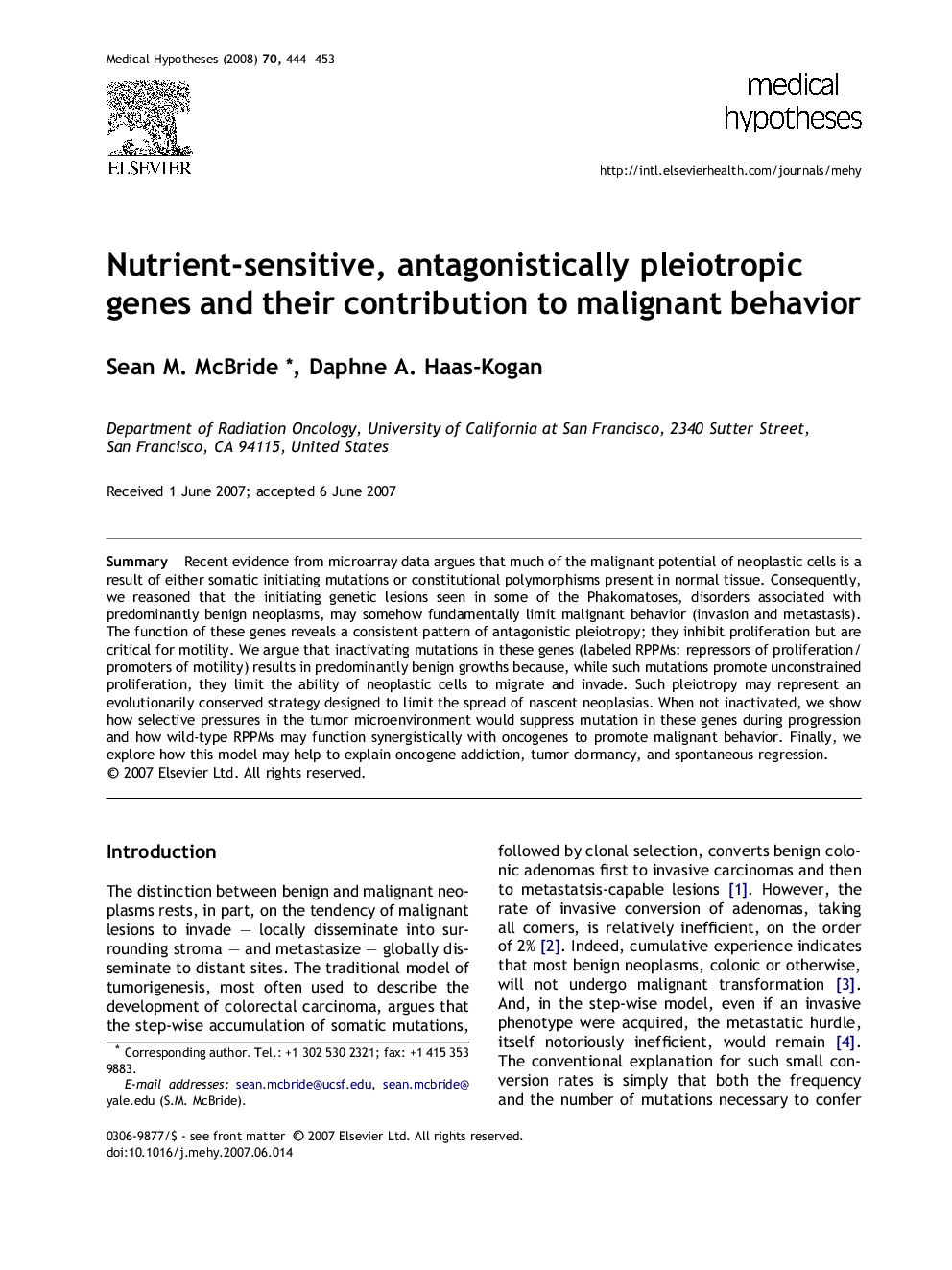| کد مقاله | کد نشریه | سال انتشار | مقاله انگلیسی | نسخه تمام متن |
|---|---|---|---|---|
| 2491933 | 1115095 | 2008 | 10 صفحه PDF | دانلود رایگان |

SummaryRecent evidence from microarray data argues that much of the malignant potential of neoplastic cells is a result of either somatic initiating mutations or constitutional polymorphisms present in normal tissue. Consequently, we reasoned that the initiating genetic lesions seen in some of the Phakomatoses, disorders associated with predominantly benign neoplasms, may somehow fundamentally limit malignant behavior (invasion and metastasis). The function of these genes reveals a consistent pattern of antagonistic pleiotropy; they inhibit proliferation but are critical for motility. We argue that inactivating mutations in these genes (labeled RPPMs: repressors of proliferation/promoters of motility) results in predominantly benign growths because, while such mutations promote unconstrained proliferation, they limit the ability of neoplastic cells to migrate and invade. Such pleiotropy may represent an evolutionarily conserved strategy designed to limit the spread of nascent neoplasias. When not inactivated, we show how selective pressures in the tumor microenvironment would suppress mutation in these genes during progression and how wild-type RPPMs may function synergistically with oncogenes to promote malignant behavior. Finally, we explore how this model may help to explain oncogene addiction, tumor dormancy, and spontaneous regression.
Journal: Medical Hypotheses - Volume 70, Issue 2, 2008, Pages 444–453